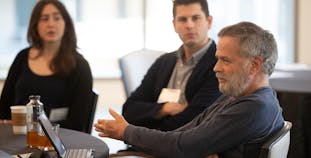Advance Online

Advance Online
A Mainstay of NPF’s Modern Advocacy Efforts
Rick Seiden chats with the editor about advocating with NPF.

Rick Seiden chats with the editor about advocating with NPF.
We use cookies to offer you a better experience and analyze our site traffic. By continuing to use this website, you consent to the use of cookies in accordance with our Privacy Policy.